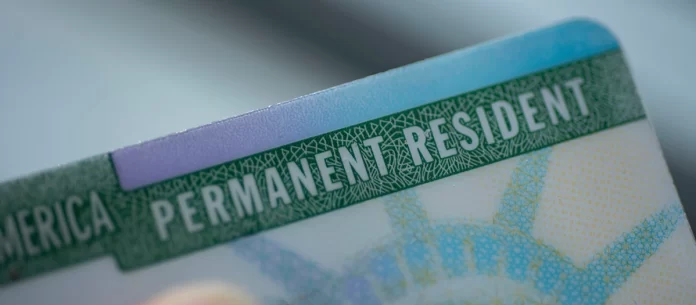The introduced bill, titled HR 6542, the Immigration Visa Efficiency and Security Act of 2023, represents a crucial step towards providing relief to thousands of Indian-Americans currently enduring prolonged waits for green cards or permanent residency
In a significant bipartisan effort, three influential Congress members, including Indian-Americans Raja Krishnamoorthi and Pramila Jayapal, have unveiled legislation aimed at reducing the green card backlog and eliminating country-based discrimination for employment-based visas, according to reports from ndtv.com.
The introduced bill, titled HR 6542, the Immigration Visa Efficiency and Security Act of 2023, represents a crucial step towards providing relief to thousands of Indian-Americans currently enduring prolonged waits for green cards or permanent residency. Congressman Rich McCormick is the third legislator to join forces with the two Indian-American representatives, officially presenting the bill on December 4.
The proposed legislation is designed to fortify the US economy, enhance international competitiveness, and expedite the reduction of the green card backlog by shifting the focus of American employers towards hiring immigrants based on merit rather than birthplace, as outlined in a press statement.
The new legislation, inspired by the bipartisan EAGLE Act, introduces a phased-in system that promises to alleviate backlogs, particularly for those experiencing prolonged waiting periods. Similar to the Fairness for High-Skilled Immigrants Act passed by the House in July 2019, the bill gradually eliminates the seven percent per-country cap for employment-based immigrant visas and raises the seven percent per-country limit on family-sponsored visas to 15 percent
HR 6542 aims to phase out the existing seven percent per-country limit on employment-based immigrant visas while concurrently increasing the seven percent limit on family-sponsored visas to 15 percent.
Congressman Krishnamoorthi emphasized the importance of ending the plight of high-skilled workers stuck in the green card backlog, preventing them from fully integrating into American society and contributing to the nation’s progress. He expressed pride in collaborating with colleagues on the bipartisan legislation, highlighting its potential to eliminate country-based discrimination for employment-based immigrant visas and simultaneously address visa backlogs while strengthening the economy and workforce.
The employment-based visa system, which grants permanent residence or “green cards” to individuals contributing to US economic growth, currently faces challenges rooted in country-of-birth quotas. Despite starting as a merit-based system, visas are allocated based on the applicant’s country of birth, hindering the process’s efficiency and fairness.
The new legislation, inspired by the bipartisan EAGLE Act, introduces a phased-in system that promises to alleviate backlogs, particularly for those experiencing prolonged waiting periods. Similar to the Fairness for High-Skilled Immigrants Act passed by the House in July 2019, the bill gradually eliminates the seven percent per-country cap for employment-based immigrant visas and raises the seven percent per-country limit on family-sponsored visas to 15 percent.
Importantly, it includes a nine-year transition period to ensure that no countries are excluded from receiving visas while the per-country caps are phased out, drawing parallels to the Fairness for High-Skilled Immigrants Act passed by the Senate in December 2020, according to the statement.
************************************************************************
Readers




